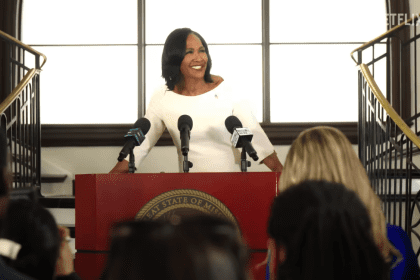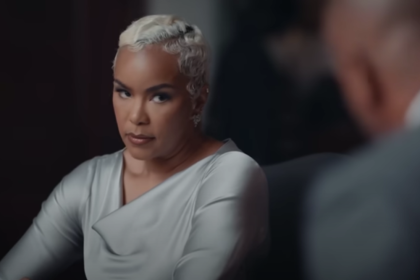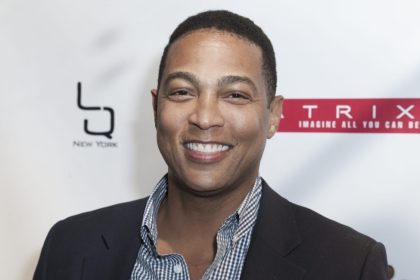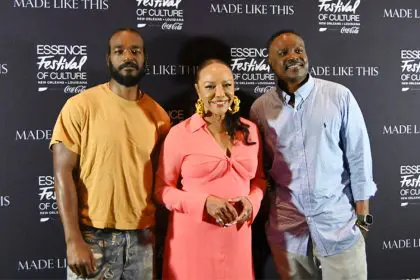Tyler Perry ventures into political drama territory with “She The People,” a 16-episode Netflix series that examines the complexities of female leadership within contemporary political systems. Co-created with Niya Palmer, the show features a ensemble cast led by Terri J. Vaughn as lieutenant governor Antoinette Dunkerson, whose unexpected rise to power becomes the central narrative driving the series forward.
The production represents Perry’s continued expansion beyond his traditional comedy-drama format into more explicitly political storytelling that addresses systemic power structures and gender dynamics in government settings. This strategic shift demonstrates Perry’s evolution as a creator willing to tackle challenging social and political themes through entertaining narratives.
Viral incident propels ordinary woman into political power
The first season begins with Antoinette Dunkerson’s unconventional path to the lieutenant governor’s office, triggered by a viral Election Day incident that resonates with voters across demographic lines. Her protective reaction to her daughter’s mistreatment creates an authentic moment that political consultants typically struggle to manufacture, demonstrating how genuine emotion can translate into electoral success.
The incident involves Antoinette physically confronting her daughter’s boyfriend at a party, with her maternal instincts overriding political calculation. This spontaneous display of protective anger becomes the catalyst that propels her campaign and ultimately secures her electoral victory, suggesting that voters respond to authenticity over polished political messaging.
The premise establishes themes about how ordinary citizens can access political power through unexpected circumstances while questioning whether traditional political pathways adequately represent diverse community perspectives and experiences.
Male-dominated political environment creates systematic obstacles
Antoinette quickly discovers that her lieutenant governor position carries more symbolic weight than actual authority, as the sitting governor attempts to control her actions and limit her independent decision-making capacity. This dynamic illustrates broader patterns of how political systems often marginalize women in leadership roles through structural and interpersonal mechanisms.
The governor’s patronizing approach reflects common experiences that women leaders face when entering male-dominated institutions, where their competence and autonomy are consistently questioned or undermined. The series uses this relationship to explore how political power operates through informal networks and expectations that can exclude or diminish female participation.
These power dynamics extend beyond individual personality conflicts to represent systematic challenges that require strategic navigation and alliance building to overcome effectively.
Environmental justice becomes central conflict focus
The primary political conflict centers on a controversial pipeline project that threatens vulnerable communities, positioning environmental justice as a key battleground for Antoinette’s emerging political identity. This issue allows the series to explore how political leaders must balance competing interests while making decisions that affect community welfare and environmental sustainability.
The pipeline serves as a metaphor for broader questions about whose interests political systems prioritize and how leaders with different backgrounds might approach policy decisions differently. Antoinette’s opposition to the project reflects values that diverge from traditional political calculations focused primarily on economic considerations.
The environmental storyline connects personal integrity with policy positions, demonstrating how individual values can influence political decision-making when leaders maintain connections to affected communities rather than becoming isolated within political institutions.
Strategic alliance building emerges as survival necessity
Antoinette assembles a team of trusted advisors including Kelly, Danny, and Pamela, who provide strategic guidance and emotional support as she navigates increasingly complex political challenges. This support network demonstrates how effective leadership often depends on collaborative relationships rather than individual heroism or charisma.
The advisor relationships highlight the importance of having allies who understand both personal motivations and political realities, allowing leaders to maintain authenticity while developing effective strategies for achieving policy goals. These characters provide different perspectives and skills that enhance Antoinette’s capacity to challenge established power structures.
The collaborative approach contrasts with traditional political narratives that focus on individual achievement, instead emphasizing how community support and strategic partnerships enable sustainable political change efforts.
Historical preservation becomes symbolic battleground
The conflict intensifies when Antoinette discovers that the pipeline threatens a church with historical significance related to Dr. Martin Luther King Jr.’s civil rights work. This development elevates the stakes beyond environmental concerns to encompass cultural preservation and historical memory, making the political battle more personally and symbolically meaningful.
The church’s historical connection provides moral authority that strengthens Antoinette’s position while demonstrating how contemporary political struggles connect to broader civil rights traditions. This narrative choice allows the series to link current political challenges with established movements for social justice and community empowerment.
The historical preservation theme reinforces how political decisions affect community identity and cultural continuity, making abstract policy debates more concrete and emotionally resonant for both characters and audiences.
Dramatic confrontation sets up future storylines
The 8th episode culminates in a public confrontation between Antoinette and the governor that represents her emergence as an independent political force willing to challenge established authority structures. This pivotal moment demonstrates her growth from reluctant office holder to confident advocate for her values and community interests.
The confrontation occurs during a press briefing where Antoinette seizes the opportunity to publicly oppose the pipeline project, using media attention to advance her policy position while challenging the governor’s authority. This strategic use of public platform shows her developing political sophistication and media awareness.
The episode ends with the governor experiencing a health crisis during the confrontation, creating uncertainty about future power dynamics and raising questions about potential succession scenarios that could dramatically alter Antoinette’s political position.
Second half promises expanded political intrigue
The remaining 8 episodes, scheduled for August release, will explore the consequences of the dramatic season finale while potentially advancing Antoinette toward higher executive authority. The governor’s health crisis creates opportunities for examining succession processes and how political power transfers during crisis situations.
The cliffhanger ending generates anticipation about whether Antoinette will ascend to the governor’s office and how she might approach executive leadership differently than her predecessor. These questions allow the series to explore themes about political transition and the challenges of implementing reform agendas within established governmental structures.
The extended episode count provides space for character development and political complexity that distinguishes the series from Perry’s typically more compact storytelling formats, allowing for deeper exploration of institutional politics and personal growth.
Perry expands creative portfolio beyond traditional formats
She The People represents Tyler Perry’s strategic expansion into political drama while maintaining his focus on character-driven narratives that examine social issues through personal relationships. The series demonstrates his ability to adapt his storytelling approach to address contemporary political themes while preserving the authentic character development that defines his creative work.
The collaboration with Niya Palmer suggests Perry’s commitment to diverse creative partnerships that bring different perspectives to his productions, potentially expanding the range of stories and approaches within his creative portfolio. This collaborative approach may influence future projects and creative directions.
The Netflix platform provides Perry with opportunities to reach broader audiences while exploring more complex narrative structures that streaming formats can accommodate, potentially influencing how he approaches future productions across different platforms and networks.
The political focus reflects broader entertainment industry trends toward addressing social and political themes through dramatic storytelling, positioning Perry as a creator willing to engage with challenging contemporary issues through accessible entertainment formats.

















